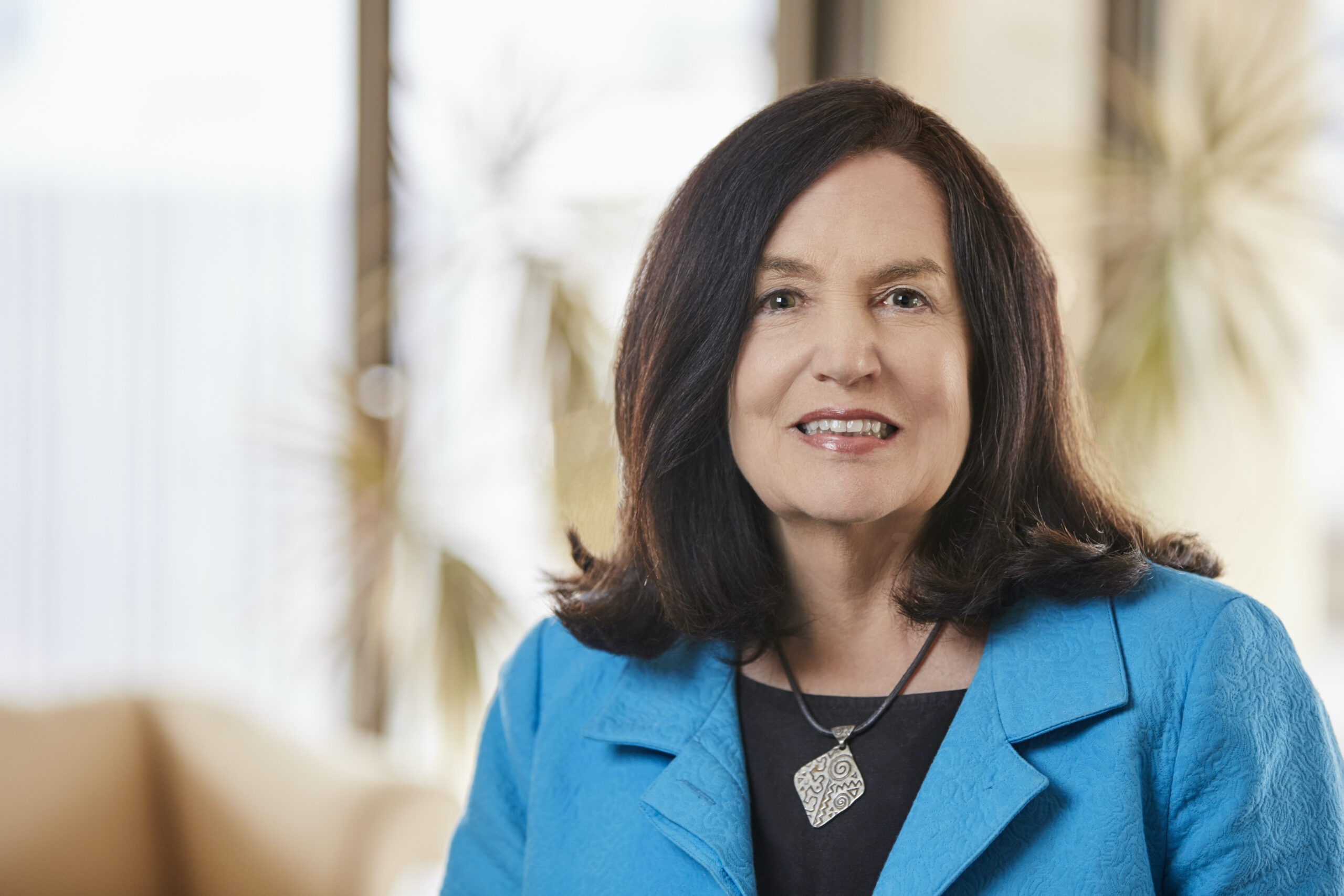BSN Alumna Advocates for Communities Through Longtime Career at Catholic Health Association
March 19, 2021 – Julie Trocchio, who received a bachelor’s degree in nursing at Georgetown in 1968, said her career at the Catholic Health Association of the United States has provided a professional opportunity to live her values.
The senior director of community benefit and continuing care at CHA said she feels “incredibly lucky that I’m able to be consistent with my values and my beliefs. I mean, I really do believe that we see the face of God in every patient we see. They taught us that at Georgetown.”
The association, according to its website, represents over 2,200 Catholic health care organizations – including hospitals and long-term care facilities – in every U.S. state.
And in her leadership role, Trocchio does work on community health improvement, protecting the environment, care provided in long-term settings, human trafficking, and tax-exempt status.
Group ‘Cohesiveness’
Trocchio, who went on to earn a master’s degree in community health nursing, still recalls the difficulty of Georgetown’s BSN Program.
“No one really told me that a nursing major was a science major – microbiology and organic chemistry and chemistry,” she said. “It was very, very challenging.”
She enjoyed the humanities coursework and would assist her nursing classmates with their writing assignments. In return, they would help her better understand concepts from their science courses.
“There was a cohesiveness to the group,” she said, “and that’s really what I remember.”
A Holistic View
What Georgetown provided its nursing students in the 1960s, Trocchio described, was a holistic view of patients.
“Something that was unique about Georgetown Nursing School is that we didn’t look at diseases or body parts in silos, but there was a real emphasis on integrating and putting everything together,” she said. “. . . It was looking at the big picture, which really gave us a worldview. Not just of nursing, but when we look at a patient, yes, they are having surgery, but also they have diabetes or they have hypertension. So, it was looking at the whole person.”
She said this broad perspective of “the big picture” assisted in her career in public health nursing. “I think Georgetown had us look at [that],” she said.
The Late 1960s
Trocchio remembered that the Vietnam War “was very much on everyone’s mind” as they prepared to graduate. Senior students were making decisions about enlistment, and her husband was ultimately drafted.
Two months before their graduation, Trocchio recalled, Dr. Martin Luther King Jr. was assassinated. “From our dorm rooms – from Darnall at the roof where we were – you could see the flames of the city,” she said, noting, “we were all sent home, and then we came back.”
Many graduation-related events that June were cancelled since Robert F. Kennedy’s funeral train would be arriving in Washington, Trocchio added. At the ceremony itself, DC Mayor Walter E. Washington (then commissioner) would be the speaker and an honorary degree recipient. However, when the students were finally seated “the skies opened, and it poured,” she said. They were instructed to go to their respective schools to pick up their diplomas.
Additionally, Trocchio described about this period of time, the male and female students on campus were much more separated with nursing students living in St. Mary’s Hall and then Darnall Hall along with women studying business, foreign service, and languages and linguistics. Until senior year, she had her all of her classes with other women students.
The new cafeteria that opened in Darnall provided students with a welcome change from the basement-level cafeteria that had existed in St. Mary’s. (Trocchio recalled generally not eating with male students in New South’s cafeteria.)
Work at CHA
Trocchio has spent 30 years at the association advocating for Catholic health care and helping members distinguish themselves as tax-exempt, mission-driven hospitals.
Part of her career has involved helping institutions support their communities through the work they do each year.
Additionally, she – along with colleagues at CHA and other major associations – worked to ensure that a strong focus on the health and well-being of the community made its way into the Affordable Care Act.
“Every community is different,” Trocchio said she and her colleagues recognized. “You don’t want a one size fits all.” Rather, she noted, the act allowed hospitals to meet the needs of diverse communities through ongoing assessment, planning, and partnership.
Right now, her work is focused on reducing health disparities, promoting health equity, and supporting nursing homes during the pandemic.
‘So Highly Respected’
Trocchio values the education she received and the friendships she made at Georgetown. “It’s so highly respected,” she said. “To say you’re a Georgetown nurse really means something in terms of reputation. And that’s just wonderful.”
During the COVID-19 pandemic, she and her nursing classmates have met weekly on Friday via Zoom.
“People have gone in very different directions, some practicing nursing, some practicing other sorts of things,” she said. “But I think it’s made us realize there’s a center core that we all share. We all came from different parts of the country and different backgrounds. But Georgetown brought us together, and we’re reigniting how we’re the same.”
By Bill Cessato
- Tagged
- Nursing History

